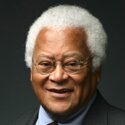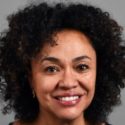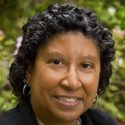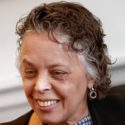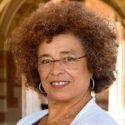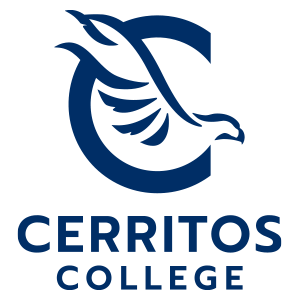Tag: University of California Los Angeles
Racial Disparities Found Among Veterans’ Experiences With VA-Funded Community Care
"Community care" provides veterans with an streamlined option to receive VA-funded healthcare through non-VA providers. A new study has found Black Americans are more likely to report negative experiences with community care providers and administrators.
In Memoriam: James Morris Lawson Jr., 1928-2024
Lawson enrolled at the Vanderbilt Divinity School in 1958. While he was a student, he helped organize sit-ins at lunch counters in downtown Nashville. In 1960, he was expelled from the university for his participation in civil rights protests.
How High School Graduation Rates Impact Life Expectancy of Black Male Students
The report found that graduating from high school was a key factor in improving average life expectancy. For each standard increase in educational attainment, Black male life expectancy increased by 10 months.
Higher Education Gifts or Grants of Interest to African Americans
Here is this week’s news of grants or gifts to historically Black colleges and universities or for programs of particular interest to African Americans in higher education.
UCLA Releases the State of Black California 2024 Report
While some progress has been made in the socioeconomic outcomes for Black Californians, the rate of progress is so slow that it would take nearly 248 years to close the gap between Black and White Californians, according to a new study.by the Ralph J. Bunche Center for African American Studies at the University of California, Los Angeles.
UCLA and Charles Drew University of Medicine Receive Funding to Support Equity in Neuroscience
Through $9.8 million in funding, the Dana Foundation will establish the UCLA-CDU Dana Center for Neuroscience & Society, which aims to gain a better understanding of the neuroscience needs of historically underrepresented communities in Los Angeles.
UCLA Study Reveals Black Americans are More Likely to Die from “Deaths of Despair” Than White Americans
Deaths among Black Americans that are related to mental-health concerns, such as drug and alcohol abuse or suicide, have tripled over the past decade. Although White Americans deaths of despair mortality rate was double that of Black Americans in 2013, African Americans are now more likely to experience a mental-health related death than their White peers.
American College of Physicians Honors Bruce Ovbiagele for Advancing Diversity in Healthcare
Dr. Ovbiagele's academic career has been dedicated to eliminating local and global stroke disparities, as well as mentoring medical students and researchers from underrepresented groups.
Kimberly Enard is the First African-American Recipient of the John D. Thompson Prize
The Association of University Programs for Health Administration has honored Kimberly Enard, associate professor at Saint Louis University, with the 2024 John D. Thompson Prize, making her the first African-American to receive the award.
Higher Education Gifts or Grants of Interest to African Americans
Grants were awarded to Shelley White-Means of the University of Tennessee Health Science Center, Howard University, the University of California Los Angeles, and the American Cancer Society. Additionally, The First Bank has awarded grants to 12 historically Black colleges and universities in Mississippi, Louisiana, Alabama, Georgia, and Florida.
New Report Examines the Economic and Educational Status of Afro-Latinos in the U.S.
A new report published by the Latino Policy & Politics Institute at the University of California, Los Angeles finds that the Afro-Latino population in...
The Pandemic’s Huge and Lingering Impact on Black Educational Attainment
The vaccine rollout in the spring of 2021 cut the share of students who planned to cancel their postsecondary education by more than half across all racial and ethnic groups. Fewer students of all races canceled their educational plans, but the racial gaps in educational disruption persisted. Inability to pay was the most cited reason for educational disruptions.
Arizona State University Scholar Is the New Head of the National Endowment for the Arts
Maria Rosario Jackson is an Institute Professor in the Herberger Institute for Design and the Arts at Arizona State University. Professor Jackson, who is of Mexican American and African American descent, also holds an appointment in the Watts College of Public Service and Community Solutions at Arizona State.
Two Universities Bestow Honors on Civil Rights Icon James Lawson
Vanderbilt University in Nashville, which expelled Lawson in 1960 for his civil rights activities, will launch the James Lawson Institute for the Research and Study of Nonviolent Movements. The University of California, Los Angeles, where Lawson has taught for 20 years, is naming a historic building in his honor.
Highly Educated and Economically Successful Black Men Do Not Escape Racial Discrimination
The study, by scholars at UCLA and Charles R. Drew University of Medicine and Science in Los Angeles, found that Black men who reach a high socioeconomic status still face higher levels of discrimination compared to their White counterparts. This discrimination can also impact Black men’s physical and mental health, according to the study.
Higher Education Grants or Gifts of Interest to African Americans in Higher Education
Here is this week’s news of grants or gifts to historically Black colleges and universities or for programs of particular interest to African Americans in higher education.
UCLA Study Finds Stimulus Package Widened Racial Economic Inequality
The UCLA analysis of disparities in the distribution of Paycheck Protection Program Funds, when standardized on a per-resident basis, found that the federal loans supported 5.8 jobs per 100 residents in Black neighborhoods, compared with 8.1 per 100 residents in White communities.
UCLA Study Finds Persisting Racism Among the Millennial Generation
The researchers sent 4,000 responses to real “roommate wanted” ads posted by millennials. They used names that signaled the race of the room seekers. The results showed that White-sounding names received the most responses, while those that signaled Black roommates got fewer responses.
Blacks’ Greater Exposure to Excessive Heat May Impact the Racial Educational Gap
Researchers found that students throughout the world performed worse on standardized tests for every additional day of exposure to 80 degrees Fahrenheit or higher. But in the United States, the researchers found that increased exposure to heat only impacted test scores for Black and Hispanic students.
Higher Education Grants or Gifts of Interest to African Americans
Here is this week’s news of grants or gifts to historically Black colleges and universities or for programs of particular interest to African Americans in higher education.
65 Years After Brown: America’s Public Schools Remain Racially Segregated
According to a new report from The Civil Rights Project at UCLA, White students, on average, attend a school in which 69 percent of students are White. Black students, who account for 15 percent of enrollment, as they did in 1970, attend schools that on average have Black enrollments of 47 percent.
Uju Anya Wins First Book Award From the American Association for Applied Linguistics
Uju Anya is an assistant professor of education and research affiliate for the Center for the Study of Higher Education at Pennsylvania State University. The award recognizes a scholar whose first book represents outstanding work in the field of applied linguistics.
Danielle Laraque-Arena Named Scholar-in-Residence at New York Academy of Medicine
Most recently, Dr. Laraque-Arena served as President and Health System CEO of the State University of New York Upstate Medical University. She has held academic appointments at the University of Pennsylvania, Columbia University, Mount Sinai School of Medicine, New York University School of Medicine, and the Albert Einstein College of Medicine.
Study Finds That Institutional Support Is Essential for Black Ph.D. Students in STEM Fields to Succeed
The research team investigated why Black graduate students were nearly three times less likely to have published a paper in an academic journal than White, Asian, and graduate students from other underrepresented groups.
UCLA Renames Thelonious Monk Institute of Jazz Performance to Honor Herbie Hancock
The change is in line with a decision by the Washington, D.C.-based Thelonious Monk Institute of Jazz following a request by the Monk estate regarding the continued use of Thelonious Monk’s name.
Harvard University Acquires the Papers of Angela Davis
Professor Davis, who taught at the University of California, Santa Cruz until 2008, has been a political activist for most of her life, advocating for the rights of African Americans, women, and prison inmates.
UCLA-Led Survey Examines Racial Differences in Public Policy Views
A major survey conducted after the 2016 election led by researchers at the University of California, Los Angeles, shows widespread racial differences in public policy issues involving health care, climate change, federal spending, immigration, education, and other issues.
Walter E. Williams to Receive the $250,000 Bradley Prize
Walter E. Williams is the John M. Olin Distinguished Professor of Economics at George Mason University in Fairfax, Virginia. Professor Williams, a conservative economist, writes a syndicated newspaper column and is the author of 10 books.
UCLA Study Examines the Racial Disparity in School Discipline
The report found that the largest racial gap in school suspensions in the elementary grades is in Missouri. For secondary school students, the largest racial gap in suspensions is in Wisconsin.
A Statistical Portrait of First-Year Students at Black Colleges and Universities
This nationwide survey prepared by UCLA compares current first-year students in terms of characteristics such as family income, grades in high school, future goals, study habits, political views, and social activities.
Eugene Washington Named Chancellor for Health Affairs at Duke University
Dr. Washington has been serving as dean of the David Geffen School of Medicine, vice chancellor for health sciences, and CEO of the University of California, Los Angeles Health System. He will begin his duties at Duke on April 1.
UCLA Faculty to Vote on Instituting a Requirement for Undergraduates to Take a Diversity Course
The proposal calls for each undergraduate to complete a course with a grade of C or better that substantially addresses racial, ethnic, gender, socioeconomic, sexual orientation, religious, or other types of diversity.
Product of Foster Care System Accepted at Nine Different Medical Schools
Festus Ohan was removed from the care of his mother at the age of 5. When he was 13, his father abandoned him and one of his two sisters. He was placed in foster care. Only 2 percent of children placed in foster homes earn degrees from four-year colleges but Ohan beat the odds.
Four Elite California Universities in Joint Effort to Boost Minority Ph.D.s in STEM Fields
The consortium, funded by a grant from the National Science Foundation, includes Stanford University, the California Institute of Technology, the University of California at Los Angeles and is led by the University of California at Berkeley.
Higher Education Grants of Interest to African Americans
Here is this week’s news of grants to historically Black colleges and universities or for programs of particular interest to African Americans in higher education.
Task Force Finds Fault in UCLA’s Racial Bias Complaint Policies
An internal task force at the University of California at Los Angeles issued a report that concluded that policies and procedures currently in place to deal with complaints of racial bias and discrimination from faculty members are inadequate.

